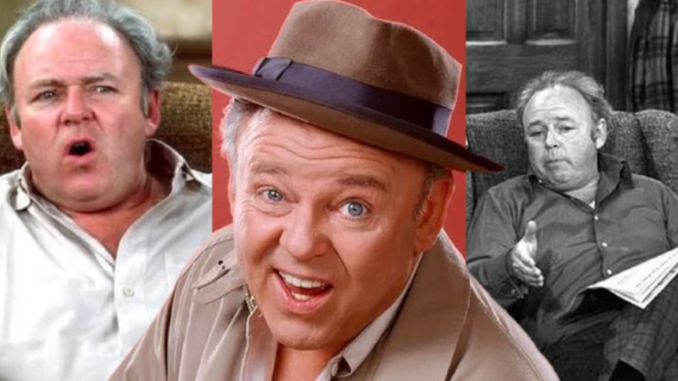
Introduction: All in the Family was more than just a sitcom. It was a profound exploration of family life, societal conflicts, and personal growth. Throughout its 9-season run, the show captured moments of joy, anger, sorrow, and everything in between, all within the context of a family trying to navigate a rapidly changing world. More than just a TV show, All in the Family represented the evolving dynamics of American families and the struggles each member faces in their personal journey. It showed us that, despite all our differences, love and understanding are what hold a family together.
The Power of the Family: More Than Just a TV Show: At the heart of All in the Family was a simple yet profound message: no matter what challenges you face, family is the ultimate source of love and support. The Bunker family, with all its dysfunctions and flaws, was a reflection of every family—arguing over the big stuff and supporting one another when it mattered most.
The show’s success lay in its ability to blend humor with raw, emotional moments. Viewers found themselves laughing at Archie’s antics, while simultaneously sympathizing with Edith’s constant struggle to make her husband see reason. They rooted for Mike and Gloria as they navigated the complexities of marriage in an often hostile environment. And they felt for the family as they worked through issues of loss, acceptance, and change.
Archie Bunker: A Complex Protagonist Who Still Resonates Today: When it comes to All in the Family, one character stands out above all others: Archie Bunker. Played to perfection by Carroll O’Connor, Archie was a character like no other. He was crass, prejudiced, and often out of touch with the world around him. Yet, beneath his rough exterior, there was a man who deeply loved his family.
Archie’s complexity was part of what made him such a memorable character. He was the perfect representation of a time when the older generation struggled to understand and accept the rapidly changing world. But over time, All in the Family showed that even the most entrenched beliefs could be challenged. Through his interactions with Mike, Gloria, and Edith, Archie slowly began to learn and evolve.
In many ways, Archie was a symbol of America’s larger struggle with social change. His evolution, while slow and painful, reflected the ongoing fight for progress and acceptance that defined the 1970s.
Emotional Moments: Why All in the Family Will Always Have a Place in Our Hearts: One of the reasons All in the Family still resonates with fans is the show’s willingness to confront real emotional struggles. It didn’t shy away from difficult issues—whether it was Archie confronting his prejudices, Edith grappling with her insecurities, or the family navigating the challenges of loss and change. These moments were not only heartfelt but also depicted real-life problems that families everywhere could relate to.
Episodes like “The Death of a Friend” and “The Longest Kiss” showcased the vulnerability and love that exists within families, regardless of their dysfunctions. These moments proved that family is not just about perfection, but about accepting and supporting one another, flaws and all.
Conclusion: The Timeless Appeal of All in the Family: More than fifty years after its premiere, All in the Family continues to hold a special place in the hearts of fans. Its blend of humor, heart, and social commentary makes it as relevant today as it was during its initial run. The show’s ability to tackle serious topics while maintaining a sense of warmth and humor is a rare feat, and it’s one of the many reasons why it remains beloved to this day.
Whether you’re watching it for the first time or rediscovering it for the hundredth, All in the Family remains a show that speaks to the heart of what it means to be family. Despite the challenges, despite the differences, family is where love and understanding ultimately prevail. And that is what makes All in the Family not just a great sitcom, but a timeless masterpiece of television.
